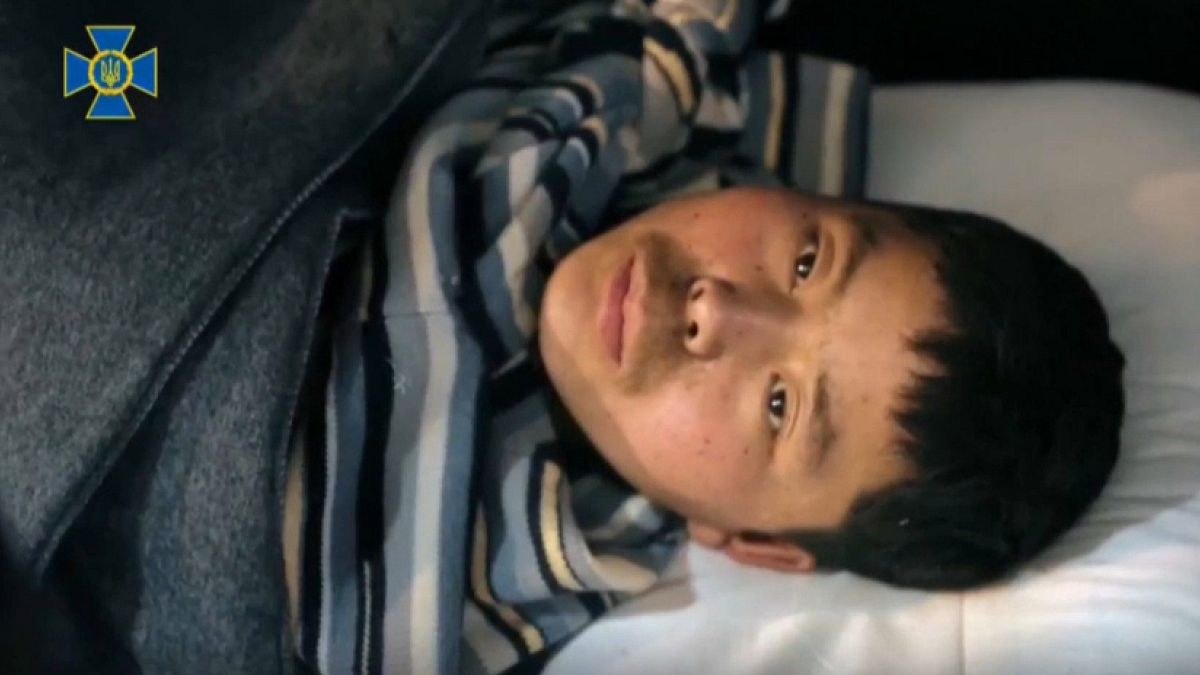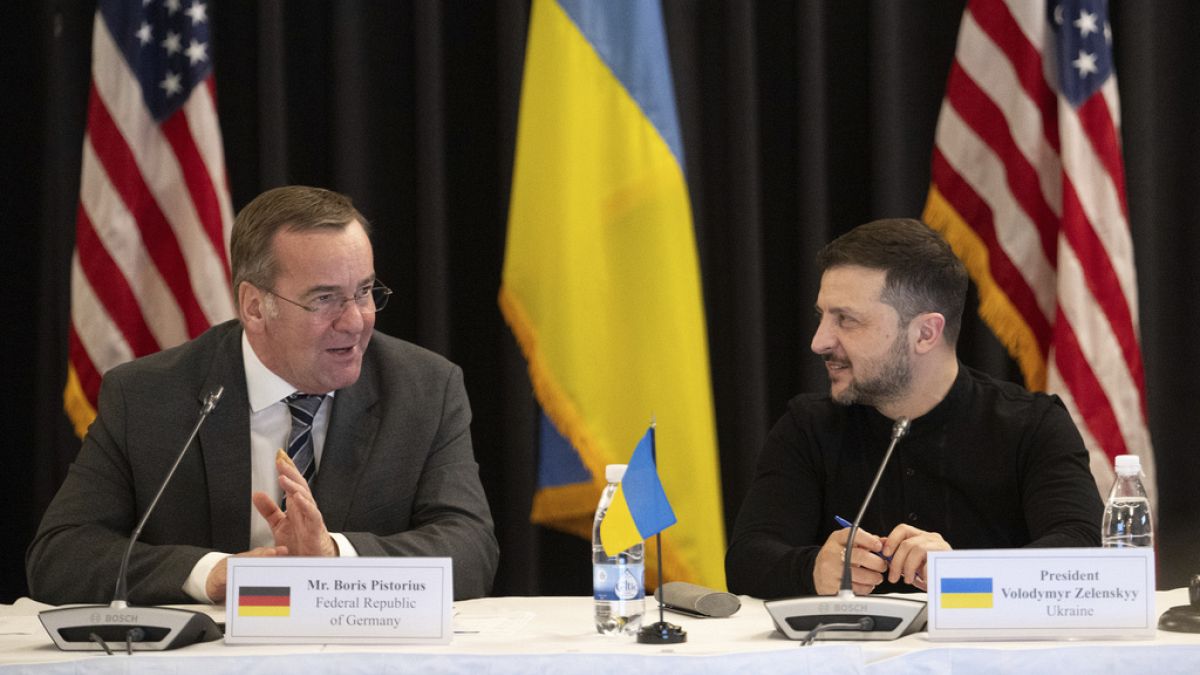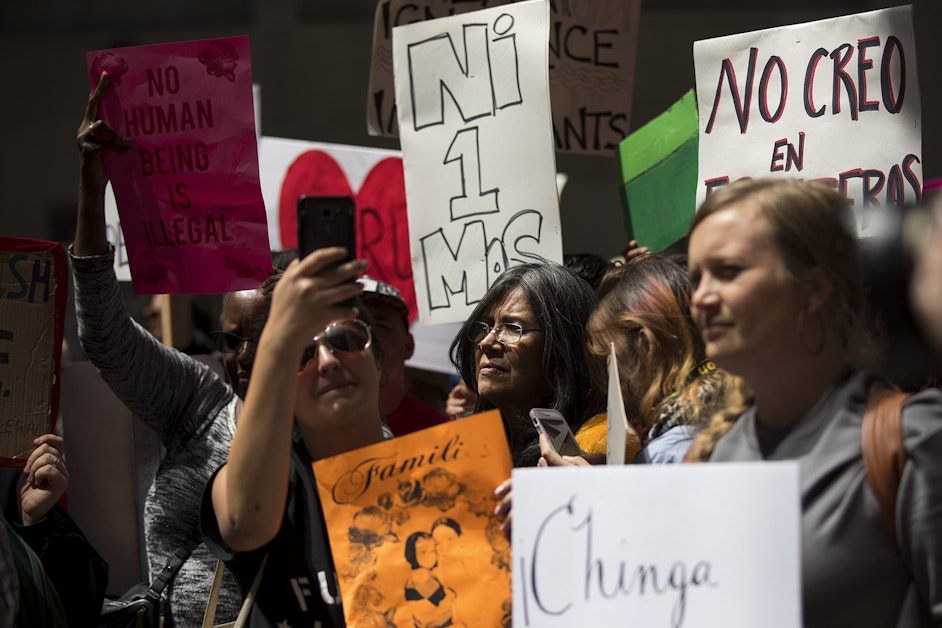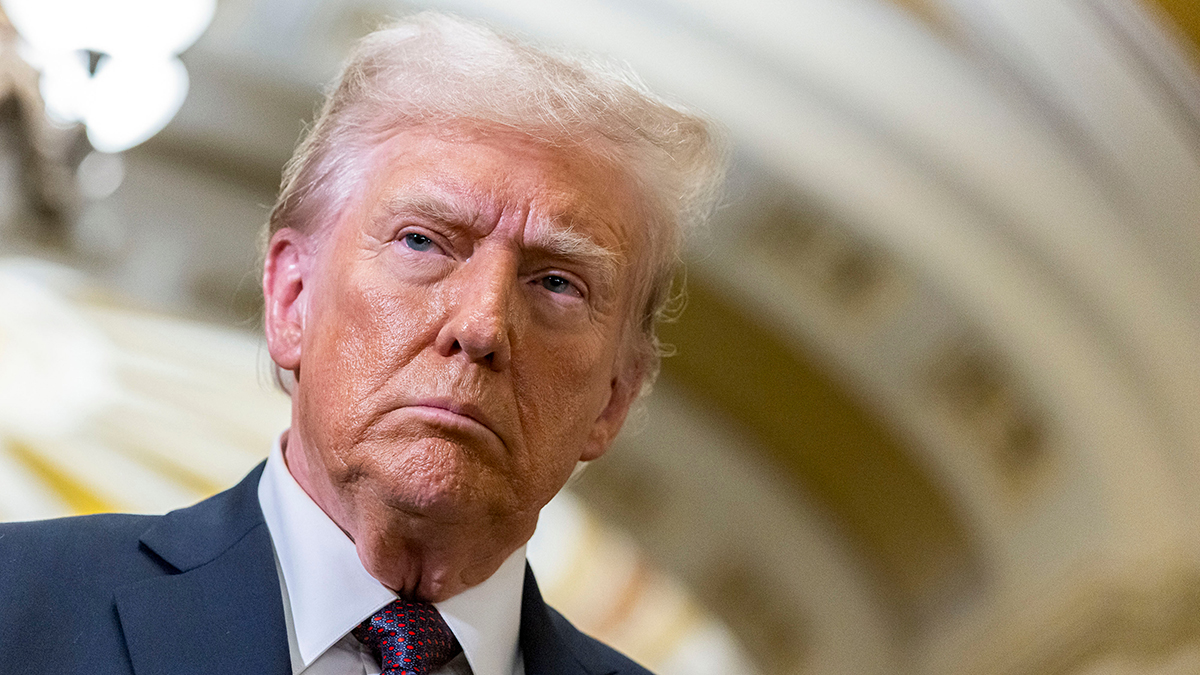World
MEPs spar over EU bans on Ukrainian grain as deadline looms
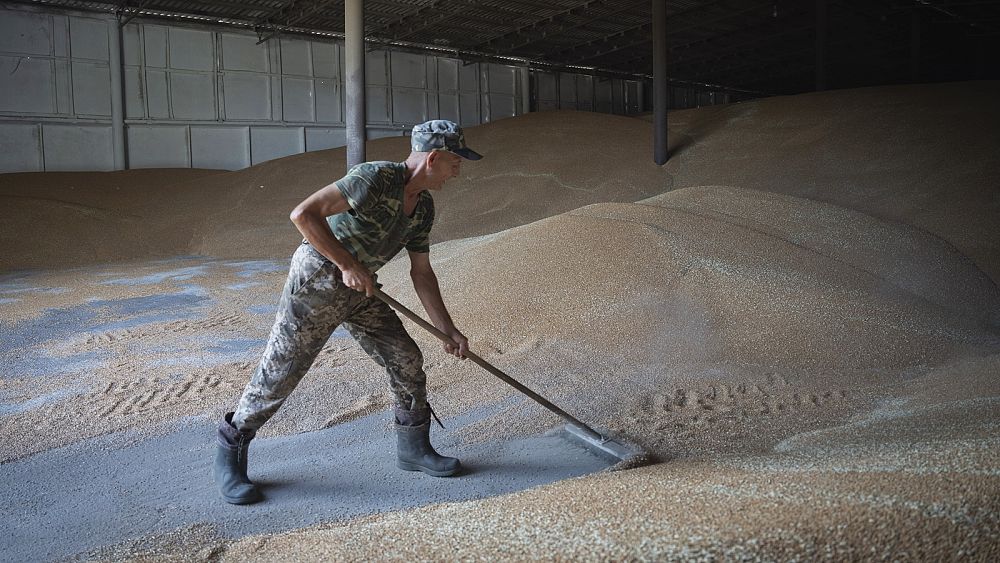
Members of the European Parliament are split over the temporary bans that the European Union has imposed on Ukrainian grain.
The prohibitions have been in place since 2 May and apply to five members of the European Union located in Ukraine’s periphery – Poland, Hungary, Slovakia, Romania and Bulgaria – who complain the grain glut has depressed prices for local farmers.
Under the bans, four products coming from Ukraine: wheat, maize, rapeseed and sunflower, can transit through the five Eastern European countries but cannot stay inside their markets for domestic consumption or storage.
The European Commission has said the restrictions would be phased out by 15 September but no formal decision has been taken yet. The five eastern European countries are pushing for an extension until the end of the year, while the remaining member states and Ukraine are firmly opposed.
The divisions spilled over into the European Parliament during a protracted, bitter and at times emotional debate on Tuesday evening.
Political groups debate ban on grain
Hard-right MEPs, particularly from Poland, forcefully defended a prolongation of the bans, arguing local farmers needed to be protected against the distorting effects of low-cost Ukrainian grain, such as depressed prices and filled-up storages.
“We will not open our borders because we cannot just permit that our farmers will lose everything because of those in Europe who cannot listen to the interests of Polish farmers,” said Beata Szydło, from the European Conservatives and Reformists group (ECR). “I have had enough of hypocrisy. I think Polish farmers deserve an apology.”
“We are showing solidarity towards Ukraine. We expect the same solidarity being shown to us by the European Commission,” said Enikő Győri, a member of Fidesz, the party of Hungarian Prime Minister Viktor Orbán. “We expect that the price of the war shouldn’t be paid by our farmers.”
Lawmakers from the centre-right European People’s Party (EPP), the Socialists and Democrats (S&D), the liberal Renew Europe and the Greens came forth to disagree and said the EU needed to help Ukraine sell its cereals, a key source of revenue for the war-torn nation, and preserve the integrity of its single market.
They also warned the continued quarrel over the bans was playing into Vladimir Putin’s hands and his attempt to “blackmail” Europe and trigger an international food crisis.
“Ukrainian grain have been and continue to be a lifeline for many people in third countries facing increasingly good insecurity and hunger,” said Petras Auštrevičius, from Renew Europe. “I therefore call on the Commission not to prolong the restrictive measures and to address the infrastructure (problems).”
“The important thing is that the grain and cereals leave Ukraine,” said Clara Aguilera, from the socialists. “We’re on the side of the good guys, not the bad guys.”
Poland ‘will not open its borders’
The debate came amidst an increasingly fraught atmosphere that suggests an all-out political crisis might be about to erupt. Poland’s hard-right government adopted on Tuesday a resolution threatening to impose a unilateral prohibition on Ukrainian grain if the European Commission decides to lift the bans on 15 September.
“Poland will not allow Ukraine grain to flood us,” said Polish Prime Minister Mateusz Morawiecki. “Regardless of what Brussels officials decide, we will not open our borders.”
Warsaw’s defiant attitude was denounced by several MEPs, who portrayed it as a strategy to win votes of rural regions in next month’s national election.
“Unfortunately, some Central European governments exchange their moral and legal obligations to domestic populism,” said the EPP’s Andrius Kubilius.
“It’s not about Polish elections. It’s about our responsibility to ensure Ukrainian crops do not rot and people do not starve,” said Sergey Lagodinsky, from the Greens.
In a sign of how divisive the issue has turned, Janusz Wojciechowski, the European Commissioner for agriculture, said it was his “strong position” that the bans should be extended until the end of the year, a stance that contradicts the executive’s line.
Wojciechowski, who is Polish and affiliated with the ruling Law and Justice (PiS) party, presented again his proposal of a subsidies programme to compensate the additional transport costs that Ukrainian companies are facing and encouraged the bloc to find alternative trading routes through the Danube river and the Adriatic Sea.

World
Cartier owner Richemont posts 10% increase in Q3 sales

World
Ancient Pompeii excavation uncovers lavish private bath complex

Archaeologists have unearthed a lavish private bath complex in Pompeii, highlighting the wealth and grandeur of the ancient Roman city before it was destroyed by Mount Vesuvius in AD 79, the site said on Friday.
The baths, featuring hot, warm and cold rooms, could host up to 30 guests, allowing them to relax before heading into an adjacent, black-walled banquet hall, decorated with scenes from Greek mythology.
ITALY’S ANCIENT POMPEII PARK CRACKS DOWN ON DAILY VISITORS TO COMBAT OVERTOURISM
The pleasure complex lies inside a grand residence that has been uncovered over the last two years during excavations that have revealed the opulent city’s multifaceted social life before Vesuvius buried it under a thick, suffocating blanket of ash.
A central courtyard with a large basin adds to the splendour of the house, which is believed to have been owned by a member of Pompeii’s elite in its final years.
“This discovery underscores how Roman houses were more than private residences, they were stages for public life and self-promotion,” said Gabriel Zuchtriegel, director of the Pompeii Archaeological Park.
The private thermal baths complex discovered by archaeologists in a villa of the ancient city of Pompeii is seen in Pompeii, Italy, in this undated handout picture released on January 17, 2025. (Pompeii Archeological Park/Ministry of Cultural Heritage and Activities and Tourism/Handout via REUTERS )
Zuchtriegel said the layout recalled scenes from the Roman novel “The Satyricon”, where banquets and baths were central to displays of wealth and status.
Decorated with frescoes, the complex draws inspiration from Greek culture, emphasizing themes of leisure and erudition.
“The homeowner sought to create a spectacle, transforming their home into a Greek-style palace and gymnasium,” Zuchtriegel said.
The remains of more than 1,000 victims have been found during excavations in Pompeii, including two bodies inside the private residence with the bathhouse – a woman, aged between 35-50, who was clutching jewellery and coins, and a younger man.
The discovery of their bodies was announced last year.
World
‘Fields were solitary’: Migration raids send chill across rural California

Los Angeles, California — Recent raids carried out by the United States Customs and Border Protection (CBP) in a rural California county have struck fear into immigrant communities as President-elect Donald Trump prepares to return to the White House.
CBP says that the operation in Kern County, which took place over three days in early January, resulted in the detention of 78 people. The United Farm Workers (UFW) union says it believes the number is closer to 200.
“The fields were almost solitary the day after the raids,” a 38-year-old undocumented farmworker named Alejanda, who declined to give her last name, said of the aftermath.
She explained that many workers stayed home out of fear. “This time of year, the orchards are usually full of people, but it felt like I was by myself when I returned to work.”
The raids are being seen by local labourers and organisations like UFW as a shot across the bow from immigration enforcement agencies before Trump’s inauguration on Monday.
His second term as president is expected to ring in a new era of enhanced restrictions and deportation efforts.
While the number of people arrested represents a small fraction of the hundreds of thousands of undocumented workers underpinning California’s agricultural sector, the anxieties caused by such raids extend far beyond those detained.
“On Wednesday [the day after the raids], I stayed home from work. I barely left my house,” said Alejanda, adding that she kept her five-year-old son home from daycare rather than risk driving to drop him off.
“Everyone is talking about what happened. Everyone is afraid, including me. I didn’t actually see any of the agents myself, but you still feel the tension.”
Emboldened agencies
Following a presidential campaign where he routinely depicted undocumented migrants as “criminals” and “animals”, Trump will likely try to fulfill his promise to carry out the “largest deportation programme” in the country’s history on his first day in office.
About 11 million people live in the United States without legal documentation, some of whom have worked in the country for decades, building families and communities.
The January arrests in Kern County appear to be the first large-scale Border Patrol raid in California since Trump’s victory in the November election, which set off speculation about the potential impact of mass deportations on immigrant communities and the economic sectors dependent on their labour.
About 50 percent of California’s agricultural workforce is made up of undocumented immigrants.
In California, undocumented status has been cited as a source of persistent anxiety for workers — as well as a means of leverage for employers, who often pay such labourers lower wages and grant them fewer protections in the fields.
But Alejanda says that workplace raids like the ones that took place in Kern County have not been common in the area.
“I have been here for five years and never experienced anything like this before,” she said, noting that workers were detained while leaving the fields to go home.
CBP said in a statement that the operation, named “Return to Sender”, had targeted undocumented people with criminal backgrounds and connections to criminal organisations.
#WeFeedYou pic.twitter.com/8e6GE9RRkK
— United Farm Workers (@UFWupdates) January 11, 2025
The raids were carried out by agents from the CBP El Centro Sector, located near the border between Mexico and southern California, more than five hours by car from the site of the raids.
“The El Centro Sector takes all border threats seriously,” Chief Patrol Agent Gregory Bovino said in a press release. “Our area of responsibility stretches from the US/Mexico Border, north, as mission and threat dictate, all the way to the Oregon line.”
Antonio De Loera-Brust, a spokesperson for UFW, said that the operation shows that agencies like CBP are likely to become more aggressive as Trump takes office.
He also disputed CBP’s characterisation of the raids as focused on people with criminal records, saying that the operation cast a wide net and profiled people who looked like farmworkers.
Two of those arrested were UFW members, whom the organisation described as fathers who had lived in the area for more than 15 years.
“By operating over 300 miles north of the Mexican border, and apparently conducting this untargeted sweep based on profiling on their own initiative and authority, Border Patrol has shown itself to be clearly emboldened by a national political climate of hostility towards hard-working immigrant communities,” De Loera-Brust told Al Jazeera.
“It’s certainly deeply concerning that this sort of operation could be the new normal under the incoming Trump administration.”
-
/cdn.vox-cdn.com/uploads/chorus_asset/file/25822586/STK169_ZUCKERBERG_MAGA_STKS491_CVIRGINIA_A.jpg)
/cdn.vox-cdn.com/uploads/chorus_asset/file/25822586/STK169_ZUCKERBERG_MAGA_STKS491_CVIRGINIA_A.jpg) Technology1 week ago
Technology1 week agoMeta is highlighting a splintering global approach to online speech
-

 Science6 days ago
Science6 days agoMetro will offer free rides in L.A. through Sunday due to fires
-
/cdn.vox-cdn.com/uploads/chorus_asset/file/23935558/acastro_STK103__01.jpg)
/cdn.vox-cdn.com/uploads/chorus_asset/file/23935558/acastro_STK103__01.jpg) Technology6 days ago
Technology6 days agoAmazon Prime will shut down its clothing try-on program
-

 News1 week ago
News1 week agoMapping the Damage From the Palisades Fire
-

 News1 week ago
News1 week agoMourners Defy Subfreezing Temperatures to Honor Jimmy Carter at the Capitol
-
/cdn.vox-cdn.com/uploads/chorus_asset/file/25826211/lorealcellbioprint.jpg)
/cdn.vox-cdn.com/uploads/chorus_asset/file/25826211/lorealcellbioprint.jpg) Technology6 days ago
Technology6 days agoL’Oréal’s new skincare gadget told me I should try retinol
-
/cdn.vox-cdn.com/uploads/chorus_asset/file/25832751/2192581677.jpg)
/cdn.vox-cdn.com/uploads/chorus_asset/file/25832751/2192581677.jpg) Technology2 days ago
Technology2 days agoSuper Bowl LIX will stream for free on Tubi
-

 Business4 days ago
Business4 days agoWhy TikTok Users Are Downloading ‘Red Note,’ the Chinese App

